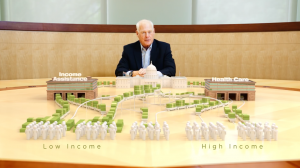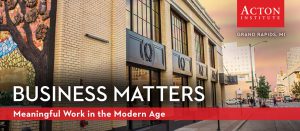


Sustained prosperity is new and sustained prosperity for masses of people pletely unprecedented. What is sustained prosperity? It’s three or more generations of people who do not need to focus on survival or live in economic depression, but who can fortably even if they live paycheck to paycheck.
The only people who previously enjoyed sustain prosperity were the aristocratic landowners and royals especially of Europe and Asia. After the industrial revolution a few business men and bankers were added to that list but only if their wealth was handed down for more than two generations. No even we do.
Isn’t this the definition of the very rich? Yes, but what is new is that the entire group of people we call the ‘middle class’ has also fortable in the four generations since WWII.
How big is the middle class? Even though there are billions who do not enjoy this prosperity, fully 1.80b people are in the global middle class today (and another .15b people are rich). Of that 1.8b there are 18% who live in the U.S., another 36% live in Europe, and 20% are in the BRIC nations.
How did so many join the middle class? It was through the opportunities of new businesses, new inventions, a new high level education for the public, and new skill and knowledge based jobs. These are only possible where there is liberty and governments that allow businesses to prosper.
Why do Africa, the Mid-East, and Latin America have a very small middle class population? Because those regions still retain the old definitions of aristocratic and inherited wealth. That’s the polite way to say it. The reality is more that corrupt governments have plundered their own nations and their own people by corralling the wealth of the land including oil and minerals for themselves.
So Why is Sustained Prosperity a Peril? Nearly everyone on earth prefers a life free from poverty and from the need to focus on survival. Call it liberty or call fort, everyone prefers this life. Now nearly 2b people enjoy that level of living thanks to the growth of economic freedom. But there are problems.
People think that nothing can go permanently wrong.
Money cures everything and there is plenty of it and always will be. Period.People think that all moral issues are irrelevant.
Ask Miley Cyrus…the latest casualty who is also a Disney role model: see #9.People think that they can afford anything and suddenly want everything.
So the richest people on earth fuel their lives with even more debt financed stuff.People are dissatisfied with life and find it boring. They are also ungrateful.
Mental illness, substance abuse, and suicide are ever increasing.People think that all who lived before their era were deficient or foolish.
In olden days people had to work hard, be moral, and watch out…what idiots!People think that it is not necessary to learn, work, or stick to it to have fortable life.
If I get a job I like, fine, otherwise I’ll just move back home with my folks. Big deal.Governments believe the economy can be taxed to pay for any government program.
If the rich just paid their fair share we’d all fortable es; spread it around.People forget what a life of fort was like and are ‘spoiled’.
OK, I broke the blender, but the jerks at Walmart wouldn’t take it back.People adopt a new value system that is narcissistic and worships the self.
How can I go to work today? It’s my birthday. All drama–all the time, for many.Governments believe that the welfare state is the passionate use of such prosperity.
Even a single dollar of reduction of social security will leave grandma out in the cold.
We must be very careful of prosperity. It has a way of deluding us into thinking that we can afford anything and that we can absorb any shock. For seven decades this has been true. But now we have changed our thinking and our planning and our savings as we ignore the possibility of real economic disaster: Beware.









